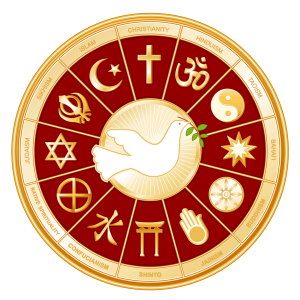Spring 2016 Program Schedule
Wednesday 7-8:30 pm March 2 – June -29
March 2: Twelve World Teachers Study Group: Hermes
Who was Hermes? Bob Bendykowski outlines Manly Hall’s analysis and includes some of his own intuitive findings to discover this mystery Master’s place in history.
March 9: Introduction to Gnosis–Part I: Psychological Death
Carl and Alanna Penk, instructors from the Milwaukee Gnostic Center, will shed light on our internal state and the need for understanding the deep meaning of our thoughts and actions. The conscious mind will be discussed as a barrier inhibiting meaningful changes at deeper levels.
March 16: Introduction to Gnosis–Part II: The Human Machine
Carl and Alanna Penk return to discuss the difference between a “spiritual path” as opposed to a “spiritual practice.” They will outline the psychological processes underlying our mind, emotions, and motor centers, and ways to responsibly control them.
March 30: The Strange Identity of Jesus Christ
In this presentation Richard Smoley will discuss information from the Bible and other ancient sources to show that, in his lifetime, Jesus’ followers thought he was someone quite different from the persona later advanced by the Church.
April 8: Twelve World Teachers Study Group: Confucius
Vivian Faye joins us to trace the life and teachings of this well-known teacher whose ideas still exert a beneficial influence on serious students centuries after his death.
April 13: Esoteric Shakespeare
In celebration of the Shakespeare 500th Anniversary Jeanie Dean offers us a fascinating presentation of Manly Hall’s (and others) theories about the Bard’s identity. Included will be remarks about phrases he coined which are still in use today.
April 20: Aleister Crowley, The Seeds Sown
Phoenix Suvayas continues his series on Crowley showing how his philosophy, based on Gnosticism, resulted in his planting spiritual seeds in the hearts and minds of many of the notable personages of his acquaintance. Phoenix will also show that Crowley’s reputation was not his essence.
April 27: Education and the Theosophical Movement
Janet Kerschner provides a colorful overview of the involvement of Theosophists in education – from the early Olcott schools in South Asia to the Point Loma Raja Yoga Schools in San Diego to the educational systems of Rudolf Steiner, Maria Montessori, Krishnamurti, and Vic Hao Chin, Jr. Unknown to most teachers and parents, Theosophical thought pervades all of these important educational developments.
May 4: Twelve World Teachers Study Group: Buddha
In this presentation Sumith Matugama will attempt the monumental task of compressing the life and legacy of Gautama Buddha into sixty minutes.
May 11: White Lotus Day Celebration
May 18: Rudolf Steiner and the Anthroposophical Society
Sharleen Leonard returns to continue her study of Steiner’s life and his continuing influence through the Society he founded.
May 25: The Principles and Teachings of the Early Essene Brotherhood
We welcome Dr. William Rogers return. He will discuss the Essenes focusing on the influence of their teachings on other religions.
June 1: Twelve World Teachers Study Group: Lao-tse
Known as “The Obscure Sage” Lao-tse was, and still is, a person with little personal recorded history. Kathleen Neuman will attempt to clarify his teachings, brief introspections which have been subjected to multiple interpretations.
June 8: Spiritual Intelligence and Nutrition
An examination of the diets of spiritual teachers from all ages and cultures indicates that these Masters ate high energy fresh food and little meat. Peig Myota returns to discuss the implications of this information in our present overly processed environment.
June 15: Occult Chemistry II
Stephen Dicke continues his presentation on the esoteric world of atoms and molecules as first investigated by Leadbeater and Besant.
June 22: Aleister Crowley–Theosophy in Action
Phoenix Suvayas returns to elaborate on how Crowley’s philosophy is essentially the same as living Theosophically.
June 29: Overview of Tropical, Western Sidereal, and Heliocentric charts
Rebecca Zawadiwsky gives us a look at three zodiac systems, their similarities, differences, and IMHO their best use.


Comments are closed, but trackbacks and pingbacks are open.